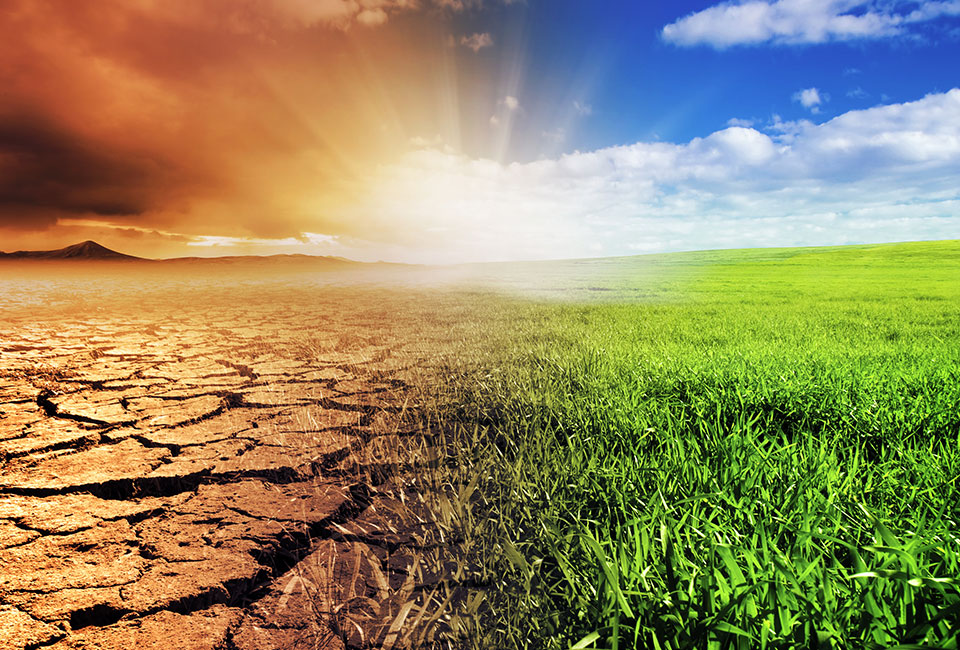
It is still possible to limit global warming to 1.5°C. If climate protection efforts remain at the current level, warming will rise to 3°C by 2050. In Switzerland, the warming is already almost 2°C.
It's still possible to limit global warming to 1.5°C. But this requires immediate action. The key to staying the course set by the Paris Agreement is to halve greenhouse gas emissions by 2030 and reach net zero emissions by 2050 at the latest. Measures taken so far are not enough to achieve this. This is the conclusion of the Sixth Assessment Report of the Intergovernmental Panel on Climate Change (IPCC). It is the first to be produced by the scientific community since the Paris Climate Agreement was signed in 2015.
Consequences of warming are stronger and coming faster than expected
The report's conclusions are clear: the impacts of global warming are greater than previously thought and are happening faster than expected. The report was released at the 58th IPCC conference in Interlaken, Switzerland. The IPCC, often referred to as the Intergovernmental Panel on Climate Change, was established in November 1988 by the United Nations Environment Programme (UNEP) and the World Meteorological Organization (WMO) as an intergovernmental body to summarize for policymakers the state of scientific research on climate change for policy makers.
Warming will rise to 3°C by 2050
The scientists conclude that if current levels of climate change mitigation are maintained, warming will reach to 3°C by 2050, the scientists conclude. It's a scenario that would cross several climate tipping points crossed, with catastrophic consequences for human well-being, especially health, food production and the economy. Nathan Solothurnmann, climate expert at Greenpeace Switzerland, warns: "Humanity is currently on a very risky path that threatens the natural foundations of our lives on a global scale".
Switzerland is particularly affected by warming
The consequences of global warming are becoming more apparent in Switzerland than on average worldwide. According to recent fact sheet recently published by Greenpeace Switzerland makes clear, the country has already warmed by almost 2°C. In recent years, this trend has led to an increase in the frequency of extreme weather events, recurring droughts, heat waves, a decrease in snow cover, the disappearance of glaciers and the thawing of permafrost. "Nevertheless, the federal government's climate policy is not in line with the very clear warnings of the IPCC," Solothurnmann cautions. And he continues, "Yet we in Switzerland have all the means to tackle the climate crisis. We can phase out the use of fossil fuels by 2035. We can also protect the ecosystems that serve as carbon sinks by changing our consumption patterns and our diet. All of these measures are investments that are critical to our future and will enable a high quality of life."
Switzerland has among the highest greenhouse gas emissions per capita
In fact, the IPCC findings also highlight a global inequity: almost half of the world's population lives in places that are highly vulnerable to global warming, mostly in disadvantaged countries. At the same time, only 10% of the richest households, mainly in northern countries, are responsible for 45% of global greenhouse gas emissions based on household consumption..
Switzerland is one of the countries with the highest greenhouse gas emissions per capita. "If we act quickly, we will be in the best position to tackle the climate problem. However, it is important to set a clear framework and clear targets," Solothurnmann appeals. That is why Greenpeace is supporting a Yes vote for the Climate Protection Act in the referendum on June 18.